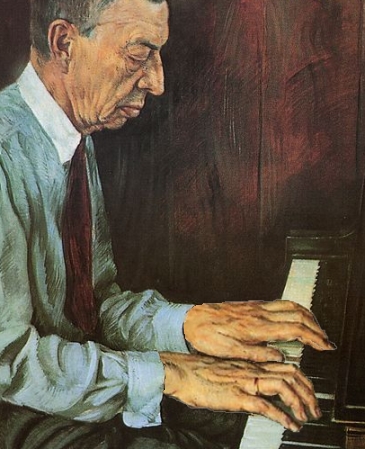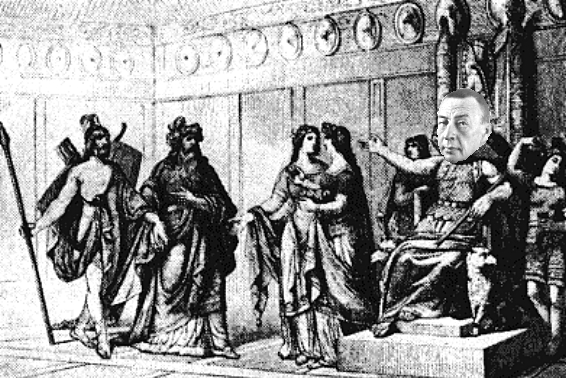
What makes Rachmaninoff great is that this taunting did not dissuade him from becoming awesome. He continued honing his performing skills and trying to write music, both despite his enormous hands. Many claim he could play a thirteenth interval with one stretched hand, but my guess is it was more like half of the piano. At age 13 he wrote some little ditties, and in his last year of high school he wrote his first piano concerto. As great as this was, he was unable to get a date to prom. His girlfriend ended up going with the school's star quarterback. This heartbreak did not go to waste, though. The pain and sorrow that Rachy (as his later admirers would call him) felt at that time led to the composition of his Symphony No. 1.

Unfortunately for Sergei, the critics smashed his ego against the rocks once more by lambasting his latest masterpiece. Following its reception, Sergei literally destroyed the document by ripping it to shreds. Fate had conspired against him, for many sources theorize that the conductor at the piece's first performance was a) drunk and b) didn't like the song from the start.
The critics' panning of Sergei's first symphony was too much to bear. He suffered a nervous breakdown, followed by an even worse hip-hop breakdown. Unaware that the rare rap recordings Rachmaninoff made during this period would become treasured pieces of musical history, Edison Records discarded the master copies to make room in their files. Sergei began meeting with a psychologist and amateur musician in an effort to regain his composure (and composor.)
By the year 1900, Rachy dug himself out of the slump and began work on his smash hit single, Piano Concerto No. 2. He dedicated the piece to his psychologist, Dr. Dahl, and even performed it himself at its premiere. Phones in Russian radio station were ringing off the hook, because they couldn't get enough of the song to quench what had been termed "Rachy Fever." In order to appease its members/rabid fans of Rachmaninoff, the Eastern Orthodox Church let Sergei marry his cousin sweetheart a year later.
After a short stint as conductor for the Bolshoi Theatre in Russia, Sergei decided to see some of Europe and avoid the craziness that had begun in Russia. He lived in Italy and Germany until 1909, when he decided to make his move on the American populace. His "Piano Concerto No. 3 LIVE!" tour was a huge success, drawing record crowds and ticket sales. When the Bolsheviks took control of Russia in 1917, Rachy and his family skedaddled out of town to avoid the ruckus. Sergei wrote much less music after this event, feeling at a loss without the inspiration of his homeland.
Luckily for us, he still managed to pump out his Rhapdosy on a Theme by Paganini and Symphony No. 3. As his skin cancer progressed, Rachmaninoff developed psychic powers. His last performance in 1943 included an interpretation of Chopin's Piano Concerto No. 2, which includes a now-famous funeral march. Rachmaninoff was laid to rest in a cemetery in Valhalla, New York. By mistake, though, his spirit was sent to the actual Valhalla of the old Norse gods. He still resides there today and has even taken over Odin's spot as head honcho.
